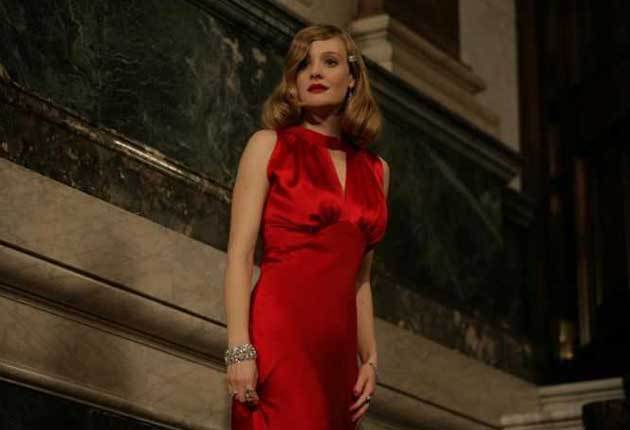Glorious 39, London Film Festival
An unhappy and inglorious time

Stephen Poliakoff's Glorious 39 (a British premiere at the London Film Festival) is a far more subversive film than its Brideshead Revisited-style patina of nostalgia first suggests. In spite of all the lovingly filmed footage of aristocratic types enjoying country house living in late 30s England, the mood here is closer to that of The Aerodrome, Rex Warner's allegorical novel about fascism in England, than it is to Evelyn Waugh.
Driven by a tremendous performance from Romola Garai that rekindles memories of the heroines in peril that Ingrid Bergman used to play with such gumption in Hitchcock thrillers, the film works well enough as a ripping yarn. It also has some provocative points to make about the duplicity and ruthlessness of the section of upper-class English society desperate to appease Hitler, if only to preserve its own way of life at all costs.
Poliakoff's screenplay is wildly (and seemingly deliberately) over-determined. The lurches in tone make the film arresting and unsettling. Gothic elements are thrown in alongside gently comedic scenes. Occasionally, you have the sense that the writer-director isn't entirely sure what movie he is making: an intimate psychological drama about a traumatised young woman or a drama about corruption at the heart of the British establishment. As in Atonement, in which Garai also starred, the switches between the Second World War era and the present day are jarring.
The main setting is England in the summer of 1939. In spite of the prospect of war, the English aristocracy is still enjoying a balmy existence. The society balls and country house parties continue as before. Young movie actress Anne Keyes (Garai) is the adopted daughter of genial, Keats-loving toff Alexander Keyes (Bill Nighy). After serving in the First World War, Alexander, now a prominent politician, is terrified of Britain being plunged back into war. He seemingly tries to keep Anne, her brother Ralph (Eddie Redmayne) and sister Celia (Juno Temple) safe from the ominous rumblings of the outside world. When Anne discovers secret Government documents and recordings stored in an outbuilding on the family estate, she realises that a violent conspiracy is afoot. The man behind it is the dapper but very sinister Balcombe (Jeremy Northam in a role close to the one he played in Michael Apted's Second World War thriller Enigma). This conspiracy involves an entire social and political class.
Poliakoff strikes such a brisk tempo that you don't have time to dwell on the inconsistencies in the plotting. There are bravura sequences. For example, in one scene, Anne falls asleep during a picnic and wakes up to discover the baby she is meant to have been tending has vanished. We see her running in panic through the woods, baffled at what has happened and beginning to question her own sanity. The scene captures brilliantly her fear and mounting paranoia. As the film progresses, all her old certainties are called into question. She begins to ask how far she can trust even those closest to her. Garai captures brilliantly her character's mix of defiance, incomprehension and, eventually, terror.
Given the country house settings and sumptuous period detail, the war itself seems very far away. We see no swastikas and for once, there is no archive footage of Hitler ranting. Instead, Poliakoff hints at the upheavals to come by showing the fate of the animals. In surreal scenes, there is a mini-pogrom against the nation's pets. Families caught up in the evacuation abandon their dogs and cats to be "put down" by the vets. We see carcasses being loaded on to bonfires.
Poliakoff has said that many elements of Glorious 39 are "true". The secret service really was used by Government, pre-Churchill, to suppress all opposition to its policy of appeasement. He shows the State behaving toward its own citizens with a viciousness that puts even the Stasi to shame. Opponents are blackmailed, intimidated, driven to suicide and even murdered. Even as this goes on, the aristocrats still behave as if they're characters in a PG Wodehouse comedy of manners.
Join our commenting forum
Join thought-provoking conversations, follow other Independent readers and see their replies
Comments
Bookmark popover
Removed from bookmarks